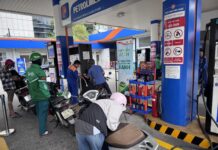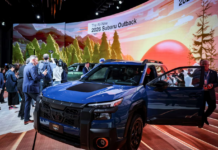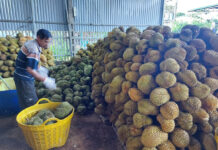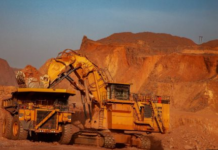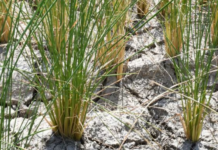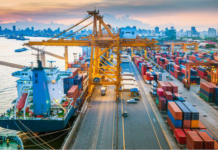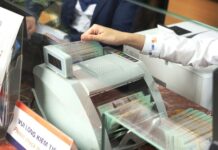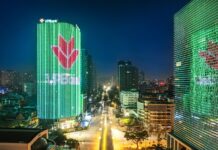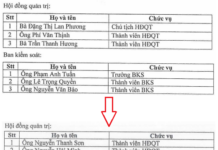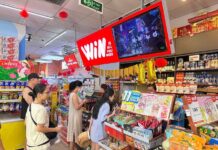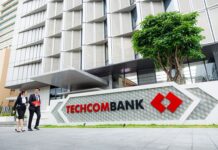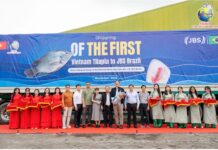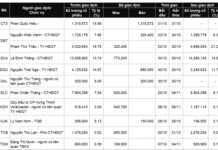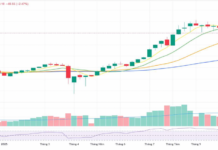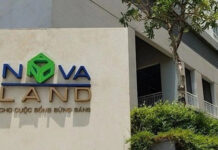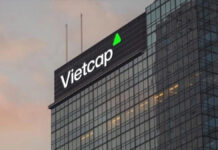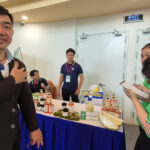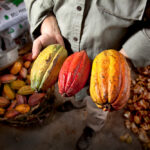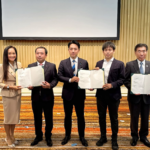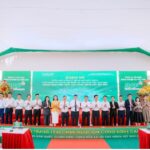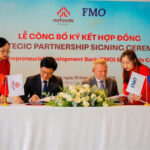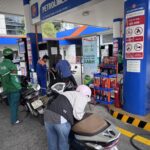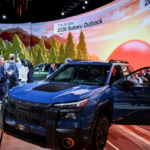According to the Vietnam Fruit and Vegetable Association (VINAFRUIT), the country’s durian cultivation area currently spans approximately 180,000 hectares, with half already yielding an average of 17.5 tons per hectare. This translates to millions of tons of durian peels and seeds becoming agricultural waste annually.
If left untreated, durian peels decompose under anaerobic conditions, releasing methane, carbon dioxide, and nitrous oxide—potent greenhouse gases. Prolonged accumulation also emits foul odors, pollutes water sources, and poses health risks to communities.
Biochar and Green Entrepreneurship
A standout solution is producing biochar from durian peels. Created through anaerobic pyrolysis, biochar enhances soil quality, sequesters carbon, and mitigates greenhouse gas emissions.
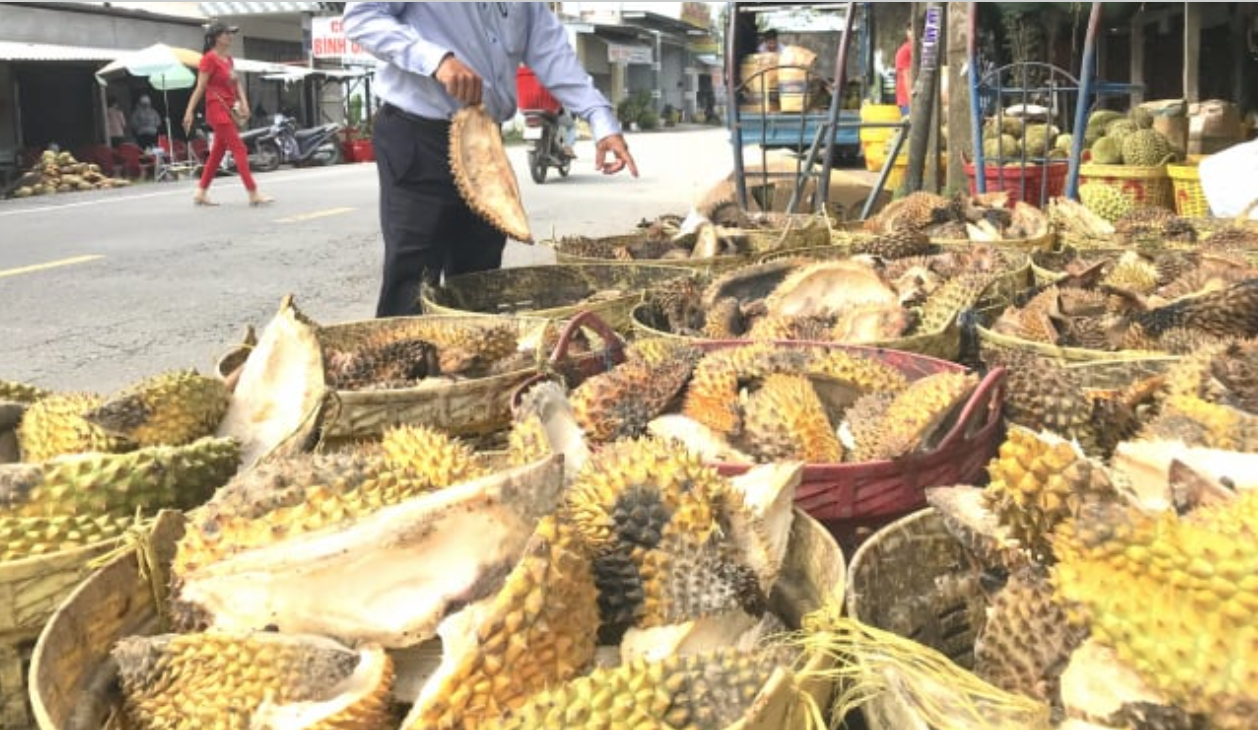
Durian peels collected for biochar production (illustrative image).
In Ho Chi Minh City, Nguyen Tan Loc—a successful coffee grounds entrepreneur—is piloting a smokeless charcoal model from durian peels. As reported in NLĐ, Loc notes this charcoal can replace coal and coconut shell charcoal. He aims to export to Japan and South Korea, where demand for clean charcoal is high. The process also yields distilled water beneficial for plants and insect repellent. Additionally, durian seeds are ground into protein-rich animal feed.
Beyond energy, scientists are exploring cosmetics potential. Researchers at HUTECH’s Institute of Applied Sciences developed a polysaccharide gel extraction process from durian peels.
Tests show the gel’s antioxidant and anti-inflammatory properties, ideal for natural masks and bath products. The team also studied using peel fibers for water filtration and white pulp for jelly in desserts and bubble tea.
Organic Fertilizer and Waste Upcycling
Another common approach is composting durian peels into organic fertilizer. This reduces fertilizer costs, improves soil health, and minimizes waste. While economic returns are modest, it supports circular agriculture and reduces chemical reliance.
Experts highlight durian peels’ rich polysaccharide, cellulose, and pectin content, offering broad applications in food, cosmetics, pharmaceuticals, and biomaterials. Key challenges include investing in suitable technology and production models for efficient utilization.
Vietnam’s durian output is projected to surge in coming years to meet export demand. This means even more byproduct waste. Without solutions, it becomes an environmental burden. However, with strategic repurposing, this “waste mountain” can transform into a sustainable resource, delivering long-term value for farmers and businesses.
Through innovative processing, durian peels have become a “goldmine” of raw materials, enabling companies to pursue sustainable development.
Unleashing Potential: From Durian Shells and Seeds to Startup Success
Amidst the explosive growth of durian cultivation and the billion-dollar annual export revenue, the industry also generates an immense volume of waste in the form of husks and seeds that require proper management.
“PAN Group Joins Forces with Two Japanese Giants to Trial ‘Immunity-Boosting’ Products for Crops in Vietnam”
The PAN Group and AGRI SMILE, in collaboration with the Mitsubishi Research Institute, are set to embark on an exciting journey as they pilot a joint project utilizing a biostimulant produced by AGRI SMILE. This innovative initiative will be implemented in the PAN Group’s raw material area, with a specific focus on assessing the nutrient absorption and heat tolerance of crops, particularly rice plants.
“High-Tech Pig Farm, Gia Hanh, Breaks Ground in Quang Tri: BAF Vietnam’s Latest Venture”
The Gia Han high-tech pig farm project is a significant venture with a total investment of 2,000 billion VND. With an impressive scale of 15,000 sows and 450,000 pigs for meat production, it stands as the largest-scale project undertaken by BAF to date.
“Nafoods Secures $20 Million in Funding from Dutch Bank”
Speaking at the signing ceremony, representatives from FMO praised the strong ESG standards of Nafoods Group Joint Stock Company (HOSE: NAF) and affirmed that the $20 million financing is just the beginning of a long-term partnership to develop a sustainable and green agriculture value chain in Vietnam.

